The Garden #7
Ah, how sweet it is to explore, laugh, share and love.
Chapter 1 in "The Language Company" is longer than a river.
Here is part of a part of the amazing tale.
Listening for thanks.
Published in:
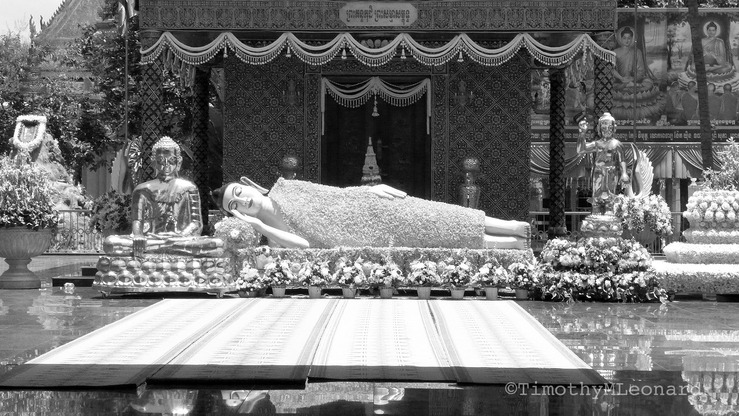
Ah, how sweet it is to explore, laugh, share and love.
Chapter 1 in "The Language Company" is longer than a river.
Here is part of a part of the amazing tale.
Listening for thanks.
Published in:

“Buy from me!” sang the swarming young Black H’mong girls in Sapa, Vietnam.
They swirled around him like dancers at the faire, like gnats around a flame.
He was on fire and they wanted to save him.
The Black H’mong wear a deep dark blue almost black indigo cloth. After it’s been repeatedly washed and dried in the sun it takes on a glistening silver metallic sheen.
They crowded around him. He was a stranger in town. A stranger goes on a journey. Two kinds of stories.
Girls carried orange and green and blue and yellow woven bags around their necks. Inside the bags they had postcards of the Red Dzao people, narrow embroidered colorful wrist bands and thin hand made wallets. The wallets had a zippered pocket inside for secret money.
“My story is to sell in the street,” said Mo, all of 10. She wore a dirty green t-shirt. Her face was smudged with dirt. Her off white broken plastic Vietnamese sandals had seen their better day.
They cost 15,0000 Dong in the market. He gave her a blue 20. “Go buy some new sandals.”
She said, “Really?”
He said, “Yes, really.”
He waited in the food market surrounded by new languages, clattering dishes, the smell of frying food and a mishmash of costumed humans.
The Black, White and Flower H’mong. Red Dzao. Tay.
Mo came back with her new white plastic sandals in a pink plastic bag. She squeezed between two slurping H’mong women and sat down.
“Are you hungry?” he said.
“Yes,” she said.
“Ok, let’s get some chicken noodle soup.”
“Ok,” she said. Delicious.

Mo & My
“Today is a good day to be empty. Practice 10,000 breaths until you disappear,” said a Lhasa monk petting a Sumatran tiger facing extinction by Malaysian villagers burning down forests to develop cosmetic palm oil exports.
“Yes, not too detached and not too sentimental,” said Zeynep sitting at a restaurant table creating surrealistic art in her notebook.
She drew stick figures with wild forested hair eating purple paper mache houses beneath a startled orange sun as disoriented Bursa talking animals crammed in spinach, green salad, tomatoes, grilled meat, rice and beans.
Across town on the TLC teachers’ apartment balcony sentry ants alerted the tribe to food. They marched from a drainpipe in single file, climbed over the edge of a plastic pot discovering good dirt. Teams fanned out sensing discarded muesli particles.
A mottled wingless insect living in bamboo detected worker ants approaching. Insect couldn’t fly. It scurried up a thin stalk to a green leaf blending in. Its feelers cleaned dirt off head and shoulders sham poop.
A gravedigger eating a hazelnut and strawberry jam sandwich on whole grain bread with grade A black olives harvested from Mudanya orchards nestled tight against Marmara Sea soil spoke to the insect as ants preparing their final assault gathered below the leaf.
“I need to move you.”
“Thanks. If I’m discovered I’ll perish. What do you suggest?”
“We use a leaf. Climb on it. I will let it go, floating over the garden. It will cushion your fall from grace. You will have a soft landing and better than a 51% chance of survival. Ground zero with better cover, food and dew you understand?”
“Ok. Thanks. 51% is better than zero.”
“You sound like an investment banker. Don’t mention it.”
“I need a new adventure.”
“Don’t we all. Here you go.”
Digger did what he had to do. Found a broad brown leaf. The insect climbed on. He released the vein-lined parachute into thin air. It floated. It landed on a huge exploding yellow sunflower.
“Goodbye,” sang the insect, “you extended my little life. I’ve survived to walk another day.”
The gravedigger sang, “Happy trails...to you...until we meet again.”

Zahara, Andalucia, Spain
After I turned the key in room twelve leaving a hostel in Ronda I passed a dim corridor. A dark shadow entered a room down the hall. I remembered seeing her at Relax eating a large salad.
We’d spoken about the size of the tomatoes and she’d laughed saying it was too much food.
I stopped, stepped back looking down the hall. We recognized each other, laughing and talking like deranged idiots. We filled in the blanks.
"What are you doing here?" I said.
"I’m checking in to save money. What are you doing here?"
"I’m checking out to save money. Let’s go enjoy sun, coffee and conversation."
We went to an outdoor cafe. She carried day old food in a plastic bag.
Monica was from Sydney and had traveled to London, Paris, Lisbon, Granada and now Ronda. She’d never been away from home and friends before. She didn’t like London and got out. She had relatives in Rome.
“I had to live with their rules," she said. Hard. Her epiphany occurred in Nice, France. “That’s when it hit me, all the loneliness, all the insecurities came piling out. I hit bottom.”
Her moment of truth hit her like a ton of bricks.
“I had no idea where I was or what I was doing. I was in chaos. I started sitting meditations.”
She made her breakthrough and it changed her life. She became free to move. It was about her expectations. She’d suffered enough, made enough wrong turns, listened to others’ advice about how to survive.
She discovered compassion and meditation saved her. She moved forward with an open heart-mind.
We sat near the Plaza de Socorro as people streamed to church, markets, shops, and met friends. She opened a can of garbanzo beans. We broke bread.
“A spoken language on the planet dies every two weeks.”
"Really?"
“Ethnologists estimate there are 6,912 living spoken tongues left on Earth. Here’s something you may find interesting. Omar a blind man in Morocco I met just after 9/11 gave me his book of stories, A Century is Nothing.”
“May I touch, see, smell, taste and hear it?”
I pulled it from an Eagle feather pack, handed it to her and entered the cafe for coffee. She opened it and read.
“There are multiple narrators in this journey. One narrator wrote on mirrors, another carved on 26,000 year-old Paleolithic cave walls and Little Wing weaved magic cloth. A change of context changes experience.
“On the loom of time the three fates did their work weaving the word ‘context’ from Latin. “Con” means 'with or together' and 'texere' means to weave. A change in context is an essential and active process. Weavers direct thoughts, emotions and actions as a kairos shuttle passes through openings in the time-space continuum. The loom binds or connects the weaver’s ability and power to speak.


“A nomad finished an extensive tragic-comic jazz poem opus in August 2001 heat and wandered away from the Pacific Northwest. On September 1st he flew from Seattle to Casablanca under a full moon dancing its reflection on waves. Fate, chance and timing.”
I returned. "Did you read about Natasha?"
“I don’t believe so,” she said. “Is she a Now or a Later in your tale? This looks fascinating,” handing him the blind book.
"It’s not my tale. I’m a conduit. Omar’s a beautiful man and dear friend. He has Baraka, supernatural blessing powers. I’ll give his prescient tale a deeper look-see when I return to the Sierras and share it with Little Wing, a weaver on the loom of Time. To question your answer, Natasha arrives later."
Monica resembled Ingrid Bergman, a star in the universe. I made an image of her because I was a rangefinder with excellent optics, good depth of field and focused manually.
We met friends at Relax, a vegetarian restaurant. Susan a lively blond dancer from North Beach studied Spanish. Simon and Christian, open-minded German guys were setting up a travel expedition company. Jon was their creative Spanish genius interpreter.
Jon’s English father was an author who’d written books about the white pueblos in Andalucía. He’d written about hardship, trying to fit into the system and make a living by buying, working and eking out an existence on a campo farm in the late ‘50’s before it became fashionable. Politics mixed with luck and perseverance. Now he was retired on his campo near Ronda and painted oils.
At a lavish Christmas dinner for fifty friends and relatives he gave Omar solid advice.
“Get out of the way and let your characters tell the story.”
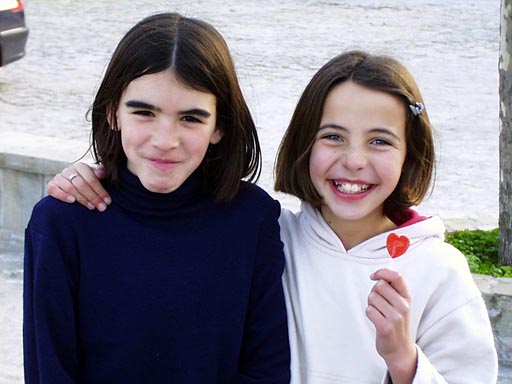
Simon worked for the German police for eight years. He got tired of picking up body parts along the Autobahn in freezing cold weather. He switched to infiltrating gangs doing undercover drug busts for a couple of years. Knowing he’d be killed if his cover was blown he quit and moved to Spain.
Simon told two short stories.
“I am a millionaire. Everyday I have a beautiful view.”
“There was a poor man in South America. For forty years he slaved away digging for gold in distant mountains far from home. Everyone in his village said he was crazy. One day he found a lot of gold and exchanged it for money. He bought some rope. He tied the rope around his waist, tied the money to the other end and ran through the village dragging it behind him. Everyone said he was crazy. ‘Why?'
“He said, ‘for forty years I’ve been chasing money and now money is chasing me.’”
Everyone drove to Grazalema below the Penon Grande Mountain where I lived with Little Wing, a weaver. She was in the mountain collecting herbs.
Declared a Biosphere Reserve by UNESCO, Sierra de Grazalema Natural Park was located in the north east of the province of Cadiz northwest of Malaga, at an altitude ranging from 250 to 1,654 meters above sea level. A Special Protection Zone for Birds, the park covered 51,695 hectares of ecological importance in the south of the peninsula.
It had the highest rainfall in the Iberian Peninsula, with an annual average over 2,000 liters per square meter. It was the most important western massif of the Subbetica range.
It was an old Roman village of 2,300 people. An isolated white pueblo with narrow cobblestone streets filled with suspicious conservative kind, simple people who’d been shut away from the ‘modern’ world forever.
My small white habitat for humanity was old, cold and intimate. When I wasn’t scribbling notes in my Moleskine, climbing back in time and loving a beautiful seer woman weaving on her loom of Time, I admired leaves turning green to yellow and brown dancing through air in silence.

In the patio were lemon and orange trees. Christian juggled three lemons. We met Antonio and Sophia from Seville. Antonio sold discount sofas for a furniture company, loved Formula One racing and Sophia was the queen of video sales. We drove into the national park for fresh air and views of mountains and valleys.
We ended up at the old abandoned Arabic Zahara Castle. Castillo de Zahara sat on a pinnacle above land and artificial lakes. Founded by Romans, Muslims took it over in the 8th century and it fell to a Castilian prince in 1407. It was recaptured in a night raid in 1481 by Abu-al-Hasan from Granada and was home for anarchists in the 19th century.
Someone said George Harrison died the day before. We remembered My Sweet Lord and hummed, ‘I look at the world and know it is turning while my guitar silently weeps.’
We sat inside vast plains, mountains ranges and sky.
“Anyone seeing the sky here would understand where Picasso got his colors,” Christian said.
We were in the Spanish province of light. Luz - land of light. A sharp sunset painted orange horizons. The sun bounced blue and green rays off El Torreon at 1654 meters, the highest mountain in Andalusia. We were mesmerized by beauty.
We climbed steep jagged stone paths skirting Roman baths through history’s past into history’s future. We held hands inside pitch-black stone passageways toward the top of the tower.
It was a kid’s day.
A full moon showed a sliver of itself over mist hills and valleys in the east. It exploded up, a perfect white orb surrounded by purple, orange and blue light.
We were in the perfect place at the perfect time. A history of Romans, Moors, and Christians, as lakes stretched along the valley. Water reflected moonlight.
“Before meditation the moon is the moon and the water is the water. During meditation the mountain is not the mountain and the water is not the water," said a Zen monk.
“True,” said Omar. “We were in a dream of light. Colors flashed across the sky. Shooting stars came out to play. Mountains shimmered in the moonlight. The lakes were mind mirrors.”
“In an improvisational acting class they had us do this when we made a mistake,” Sherri said. She arched her back, threw her arms into air and screamed, “I SUCK,” and relaxed. Everyone laughed seeing her intention in an instant. ZAP. Clearing the way with heart.
Driving past lakes reflecting blue and silver moonlight Sherri said, “You know this would be a perfect night to be able to fly. To make love in the sky.”
“Yes," I said. “We’d make love flying upside down doing acrobatic turns in space while connected.”
“Yes,” she said. “If the earth were a marble and dropped into the lake we could swim to the surface.”
“Yes, and burst free and fly, glide over the mountains and plains end to end forever.”
“Yes. Just for one night.”
“Yes. Only during the full moon we’d have the freedom to fly all night long.”
Our universe was Yes.
We listened to Portuguese Fado singers sing sad songs about fate and love as headlights created shadows. Moonlight dancing on lakes illuminated jagged gray dolomite mountains in a black sky full of shooting stars. Our collective energy made it a day and night we’d remember forever.
We were shooting stars.
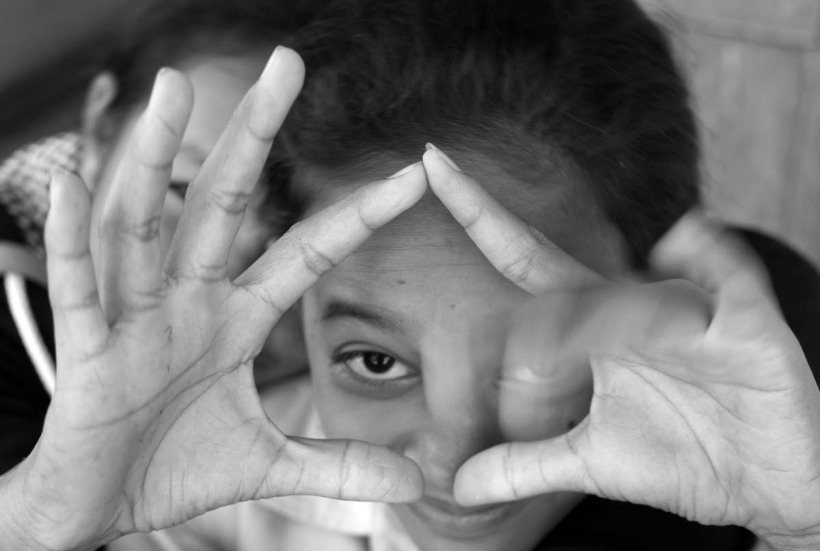
The English facilitating opportunity in Yangon met his needs for five months. He and four other teachers were downsized by Mr. Money, CEO when he lost a building lease.
Let’s have some language fun in Utopia. Open your head heart mouth. Dream big draw big.
Create a new photo book, entitled Street 21 documenting Yangon, Myanmar.
Until nationalism in 1962 English was taught in schools.
Bye-bye British. Now it’s Burmese. Many people here speak the language of noble barbarians. Hello, what’s your country? God bless you, said a smiling man.
Everyone is friendly gentle and kind. Buddhist nature.
Myanmar has seven states and 135 ethnic groups. 55-60 million.
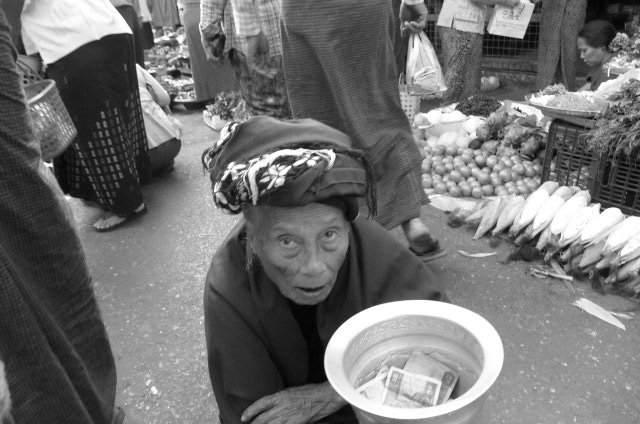
His Yangon neighborhood reminded him of China in the 90’s. Tight narrow dwellings.
He lived 114 steps up from ground Zero. He salutes sunrise. Crows say hello. Caw-caw, look a stranger. Their wing music is soft. Feathers glide through air with the greatest of ease.
Train whistles, click-clack music street sellers sing dawn food wares, bird songs.
Two yellow bamboos, one green bamboo and a red and white flowering thick-stalked plant in green and blue containers absorb balcony sun.
Joy is growing, nurturing a small garden. The weather is cool and mild through March - then big heat for three months followed by the rainy season. Sky tears.
He takes a taxi to work/home for $1. Horrendous traffic jams. I’ll race you 10’. Ok. Creep and stop. No motorcycles are a quiet blessing. Banned after an assignation attempt.
Get to the verb. I am a camera. Hunt, freeze, shoot.
Have ink will travel.
Bleed words.
It’s not about you.
It’s ten claws scratching at twenty-six letters.
This is a letter.

He traverses 114 steps, open the large lock on the sliding gate, passes through life, slides it locks it and walks down the street passing men frying dough, tea drinkers eating noodles, women selling fruit and veggies from bamboo baskets, people staring at cheap phones asking relatives are you still alive, where are you, when are you coming home, I miss you as he passes through a narrow alley with 3-4 story apartments, balconies spilling flowers, grateful sliding gates, passive dogs and pedestrians.
The path leads past wooden and bamboo homes where people cook outside corrugated bamboo shacks, bath from large cisterns, kids play, women cook/sell street eats, people chat, walking to the large local market overflowing with colorful nutrition. Fresh cut flowers in 1001 varieties for sale are ubiquitous. Home décor. Bouquets say hello. Women wear sweet smelling white flowers in their hair.
He reaches the small local train station.
Red brick, oval shaped entrance. Barred ticket window. Friendly man helps negotiate a ticket into city center. 200 Khat (20¢).
Four tracks, discarded cars lie on abandoned ways. People burn trash along tracks. Bamboo shacks. PSP mansions. Women dry sardines on pavement.
Waiting seats are iron-rails glued to cement pedestals. Men spit out red betel nut juice. Betel sellers are everywhere. Big business. Cheap buzz. Cancer of the mouth.
Push and shove to get on. Get going. Get real. Get out.
Get is the joker word in English.
The southbound engine pulls six yellow and brown cars packed with humans going to work, school and town.
Women balance watermelon slices on heads selling red juicy slices, men hawk DEMOCRACY newspapers and boys proffer water.
Down the line they jump off and grab a train going north. The majority of passengers stare at cell phones. The real world is boring enough as it is.
Traveler hits the bricks doing documentary street photography, exploring narrow streets filled with Indians, Bangladeshis, Pakistanis, Chinese, Burmese, street stall food smells, buyers and sellers, meat, fruits, vegetables, hard survival jingle-jangle life. Pulsating vibrancy.
He feels alive here.
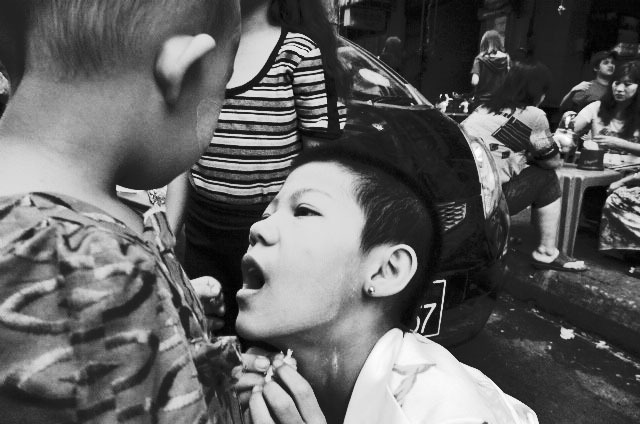
Every week he visits a new barber in town for a head shave. Indian. Chinese. Burmese. Travel taught him to trust a man holding a straight razor against his throat.
Sitting meditation.
This is the perfect place to gather raw poetics about the human condition.
A lapidary man has an extensive operation cutting/polishing stones from a jade quarry. He explains qualities and examples of mounted ruby, blue sapphire and jade pieces. A huge business considering northern slave mines, Chinese demand and international markets.
+
Traveler smells like garlic after preparing his lunch of sardines, broccoli, spinach, pasta, carrots, tomato, avocado, garnished with oregano, curry spice, saffron and olive oil.
Teak chopsticks will travel.
He eats in the upstairs staff dining area with female Customer Service Officers. They bring rice, small bags of spicy add-on juices and portions of pork or fish in shiny round aluminum stacked containers. Mommy makes my lunch, they murmur.
They shovel it in with aluminum spoons. They talk with their mouths full. Traveler shares veggies. Hot green Nara tea is delicious. Leaves float on the surface.
One CSO girl said, the CEO is mean and selfish. Yes, said traveler.
The other native teachers devour fast food from the hamburger joint at the nearby shopping center while sitting at their desks staring at computers or yakking. Exciting.
Teachers fly to Bangkok every seventy days on a visa run. HR provides holding company business documents for re-entry into the gravitational field. Forms, a smiling photo and a clean $50. Old money is not accepted. No creased, folded currency. So it goes.
Longyi is the traditional sarong-like apparel for men. He discovered a fine silk cotton blend in Mandalay at a weaving village way back when. Ventilation.
Needle leads thread. Threads lead a conversation.
